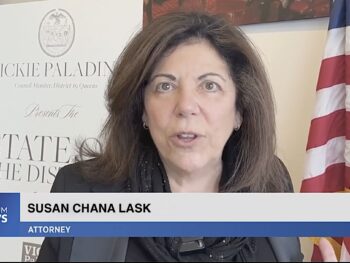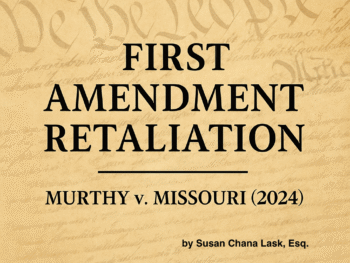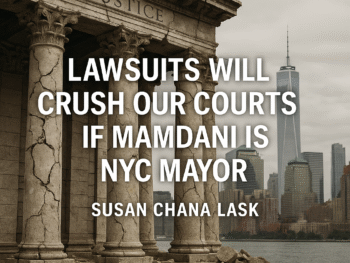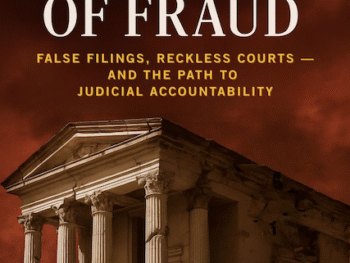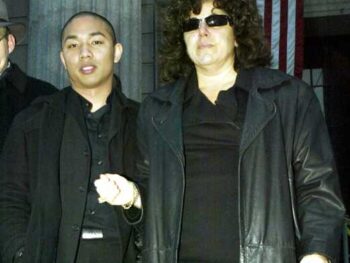Foreclosure Fraud Defense Attorney Susan Chana Lask was the first attorney to expose Baum in 2010, sue him for her clients and win a settlement. She says Baum’s now closed Foreclosure Mill “HOMEWRECKED” New Yorkers and the court system with the mess he left us with, as quoted in Gannett’s story today.
Foreclosure firm Baum’s demise leaves N.Y. homeowners in costly limbo
12:11 AM, Feb. 19, 2012 Written by Cathey O’Donnell
New York’s largest foreclosure firm, which once handled thousands of cases in the Lower Hudson Valley, will officially close Monday, but it has left a trail of questions and frustrated property owners caught in legal limbo.
The Steven J. Baum PC law firm, based in Amherst, N.Y., originally was retained for more than 600 foreclosure cases that remain active in Westchester, Rockland and Putnam. In all, Baum’s firm has handled more than 4,000 cases in the three-county region since 1999, court records show.
But last year, the firm announced its official closing, scheduled for Feb. 20, after it came under scrutiny from state and federal agencies for “robo-signing,” or mass producing foreclosure documents without verifying whether they were accurate.
“The problems Baum’s firm left this state with are just beginning,” said Susan Chana Lask, a Manhattan attorney. “The new firms taking over his files need to take time to figure out and correct what he did.”
That means homeowners face longer delays and could owe more money in accrued interest, penalties or fines while their cases drag through an already overburdened state and federal court system.
“This is a real problem,” said Derek Tarson, an attorney with the Legal Aid Society of Rockland. “I’ve really noticed it at the foreclosure settlement conferences where I have clients who show up but there’s no representative from the bank.”
In the Lower Hudson Valley, there have been 21,026 initial foreclosure filings since 2007, according to figures from the Westchester, Rockland and Putnam county clerks’ offices. Since 2009, the three-county region has reported 2,567 foreclosure judgments, the last step in the process where a homeowner actually loses the property.
Property owners and their attorneys have expressed frustration with the industry as a whole, and specifically the Baum firm, because they claim that court documents have been “sloppy,” its attorneys have failed to respond to their inquiries and cases have languished in the system. Michael Pagan, a property owner from Brooklyn, said his attorney has tried to get information from Baum’s office with no success. At one point, a Baum staffer came to his building and distributed a letter warning his four tenants of possible foreclosure, he said.
Pagan attended a loan modification event last month at Yonkers City Hall after 3,500 distressed property owners received letters from banks. Pagan blames the Baum firm for prolonged delays in his efforts to sell the property.
“We’ve been trying to close on this property for three months,” Pagan said of the Brooklyn building where he lives. “He ruined my life.”
Baum’s name is familiar statewide as he churned out thousands of foreclosure and bankruptcy cases on behalf of the nation’s largest lenders, including Wells Fargo, JPMorgan Chase and Citibank.
A spokesman for the Baum firm wouldn’t comment on specific cases or charges, but he disputed that it hasn’t been responsive to other attorneys.
“We have diligently transferred files to new counsel and timely responded to their requests,” wrote Earl Wells, the spokesman.
Despite the many issues plaguing the system, the number of foreclosures continues to fall in the Lower Hudson Valley. Last year, the number of foreclosure judgments fell 82 percent compared with calendar year 2009, according to county court records.
The main reason is an order issued in October 2010 by New York Chief Judge Jonathan Lippman that requires attorneys to verify that the court documents they file are accurate. The number of foreclosures in the region has plunged ever since.
Still, judges have experienced problems with the Baum firm as recently as a few weeks ago.
Late last month, Judge Cecelia G. Morris of the U.S. Bankruptcy Court’s Southern District said she had enough and cited Baum with “failing to participate in loss mitigation in good faith, failing to turn over files, unreasonably,” and deliberately multiplying proceedings.
A week later, Morris again lashed out at Baum and his attorney, Vincent Doyle, for calling her office in Poughkeepsie and asking for written instructions on rules of procedure. Doyle is president of the state bar association and has represented Baum on several occasions. “We believe all of the concerns raised by the court have been addressed,” Wells wrote in a statement when asked about the proceedings in Bankruptcy Court.
Baum’s firm already has paid $2 million in federal fines, is under investigation by multiple state and federal agencies, has been blacklisted by both Freddie Mac and Fannie Mae and faces at least one class-action lawsuit.
New York’s attorney general, Eric Schneiderman, issued subpoenas last year against the firm in an ongoing investigation, though a spokeswoman wouldn’t comment on its progress. Wells also said the firm would not comment on any open files or matter before the court.
Homeowner Cindy Phillips, a Rockland native who moved to Orange County and has spent 3 1/2 years fighting to save her home, said her experience with the Baum firm has meant endless refiling of paperwork as she tried to work the system.
At one point, she attended a court hearing requested by the Baum firm but no one appeared. In the end, though, she amassed more than $100,000 in late mortgage payments, penalties and fines.
But after trying alternatives, she decided to declare Chapter 13 bankruptcy, which automatically halts foreclosure proceedings.
“I got no help from Steven J. Baum’s office, no help from the bank, no help from anyone,” said Phillips of Highland Falls. “After going through this, I don’t know how many people can stand it.”
Baum’s closing represents one more set of legal problems plaguing New York’s foreclosure process that’s now the center of several class-action lawsuits and includes allegations of sloppy paperwork and deceptive practices by banks and law firms.
More than 40 states, including New York, recently reached a settlement with major lenders over their foreclosure practices. The state is expected to receive nearly $790 million, including $495 million for loan modifications, $140 million for homeowners to refinance their mortgages and $13 million for victims of wrongful foreclosures.
Meanwhile, new attorneys who have received Baum’s massive caseload must review each document, some dating back years, and figure out how to proceed. Michael Schwartz, a White Plains attorney who specializes in foreclosures, said he hasn’t experienced any issues with delays because of Baum’s closing. However, some documents filed by Baum’s firm couldn’t be authenticated, a problem Schwartz said is rampant throughout the mortgage foreclosure industry.
“Unless you pursue litigation, you will never see the original documents and you’re never going to really know,” Schwartz said. “They can’t foreclose because they can’t verify the documents.”
Other attorneys, however, say they’ve experienced problems with the transfer of cases.
Two different attorneys have appeared in court and there have been disputes over who would handle the case, said Adam Cohen, attorney for MFY Legal Services in New York City, which has filed a class-action lawsuit against Baum. Cohen said it also has taken months to receive necessary documents from Baum’s office.
“It’s a total waste of time, and many, many borrowers will be harmed by all of this,” Cohen said. “Homeowners don’t know what to do, and the homeowners representing themselves bear the brunt of this.”
Despite the closing, Cohen said his firm intends to proceed with its class-action lawsuit and hopes to recoup financial damages from its insurance company to reimburse homeowners who lost their properties because of Baum’s practices.
Cohen said he doesn’t know exactly how many homeowners were affected, but it ranges from 5,000 to 10,000 statewide. The lawsuit claims Baum’s firm has failed to certify the accuracy of foreclosure documents, which means homeowners either can’t receive a loan modification or they’re stuck in legal limbo.
“There are several theories as to why they are sitting on the documents, or unable to complete the filing or the attorneys are unwilling to affirm the documents,” Cohen said. “Either way, it’s still a violation.”
In the meantime, some local attorneys say they’re pleased that their cases are being transferred to other law firms.
“We welcome the demise of the Steven J. Baum law firm,” Tarson said. “They were very difficult to deal with and very unresponsive.”

